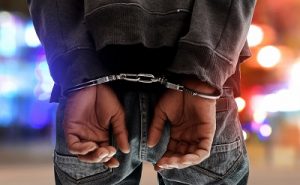 In the state of California, driving under the influence (DUI) refers to any action where you were driving a motor vehicle while impaired by either drugs or alcohol. The most common conviction for a DUI is driving with a blood alcohol content (BAC) reading above the legal amount. When pulling over a driver who is suspected to be under the influence, police officers want to administer a field sobriety test to figure out whether you are impaired. These tests are not always accurate.
In the state of California, driving under the influence (DUI) refers to any action where you were driving a motor vehicle while impaired by either drugs or alcohol. The most common conviction for a DUI is driving with a blood alcohol content (BAC) reading above the legal amount. When pulling over a driver who is suspected to be under the influence, police officers want to administer a field sobriety test to figure out whether you are impaired. These tests are not always accurate.
The National Highway Traffic Safety Administration has a range of tests that all fall under the umbrella of the Standardized Field Sobriety Test:
- Horizontal gaze nystagmus
- The walk-and-turn
- One-leg stand
How Accurate Are Field Sobriety Tests?
The prosecution claims that field sobriety tests are accurate 77% of the time on average. The typical “walk-and-turn” methods have a 68% accuracy rate. The one-leg-stand method has a 65% accuracy rate. If officers use all three tests together, the average accuracy is just 82%. This leaves a lot of room for error that can come from a number of personal factors for each individual.
What Are Some Things That Cause Inaccuracies in Field Sobriety Tests?
The biggest problem with these tests is that they are subject to the interpretation of the officer. This can sometimes lead to a driver with little to no alcohol in their system to be arrested if the officer judges that they struggled during the tests.
People with physical or mental impairments will perform poorly on this test. For example, anyone with inner ear problems or balance problems may fail balance portions. Other common reasons for failure include:
- Obesity
- Old age
- Speech impediments that mimic intoxication
- Mental impairments that mimic intoxication
- Poor balance
- Anxiety associated with being under police scrutiny
- Fatigue
How to Prove Inaccuracy in a Field Sobriety Test
There are many things that can cause results to be inaccurate, but recent reports indicate that portions of the test are incorrectly conducted by police officers 95% of the time. As such, a good case against inaccurate field sobriety test results can begin with how the tests were administered. Defense attorneys can also argue against a lack of baseline for results.
There are also plenty of situations where poor performance was the cause of an innocent person being charged with DUI.
Another common issue that compromises the accuracy of field sobriety tests is improper administration of the tests, such as asking the driver to conduct the one leg stand in a sloped testing area; which would produce different results based on different slopes.
You may have been issued complex instructions in a short period of time. Some officers only give the instructions in as little as 10-15 seconds with no repetition or answering of questions, with the expectation of the driver to instantly retain those instructions. This can cause mistakes which can be misdiagnosed as intoxication.
What to Do if You Have Been Charged With a California DUI Because of a Failed Field Sobriety Test
If you or a loved one has been charged with a DUI, it is important that you contact a DUI attorney immediately. An experienced attorney will be able to help you prove your innocence and avoid fines, jail time, or loss of license as a result of a faulty field sobriety test system.
My name is Jon Bryant Artz, and I have over 40 years of experience helping DUI victims get the defense they need to keep their record clean and fight incorrect charged. If you have been issued a DUI in Los Angeles, don’t hesitate to give me a call. I will walk you through the process of fighting it and defend your rights tirelessly.
Don’t wait for relief, work with one of the best Los Angeles DUI defense attorneys today and get the legal defense you deserve. Contact me today for a free case evaluation, with personalized, one-on-one help.


